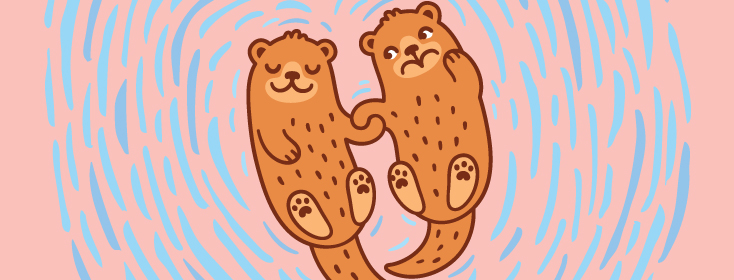The Psychological Battle May Be More Difficult for Co-Survivors
I have had the distinction of being a caregiver or co-survivor of a close family member, my brother, as well as a cancer patient myself. In truth, psychologically, I believe the role of the co-survivor is more difficult.
I come from a large family. I am the third of nine siblings. My brother Tommy, who was the firstborn, was two years older than I was. We were very close.
Tommy was only 30 years old when he was diagnosed with colon cancer. He died at the age of 31.
Twenty-two years later, I was diagnosed with lung cancer. I couldn’t help but think about how my brother’s diagnosis struck me. As I began my treatment journey, I suspected dealing with my diagnosis was harder on my loved ones than it was for me. Not physically, of course—but psychologically.
Emotional impact of being a co-survivor
There is a certain helplessness loved ones experience as they stand by their family member who is undergoing treatment and physically fighting the cancer battle.
My brother-in-law was diagnosed with cancer a few months ago. He underwent treatment and all indications are that the surgery was successful. Time will tell, but it appears as if his treatment may be completed. My sister, of course, was with him every step of the way. She is a co-survivor.
Now, my sister is undergoing several diagnostics tests to determine whether she has cancer. Yesterday, her doctor called her and my brother-in-law into his office to discuss his serious concerns.
Now that she is the patient, my sister and I discussed the difference between being the patient and being the person who loves the patient. We both agreed that being the co-survivor is mentally more difficult than being the patient.
Now I am back in the co-survivor role…anxiously wondering what I can do to alleviate the stress or difficulty my sister has dealing with this beast we call cancer.
We cannot undergo surgery for our loved ones. We would if we could. It would not help them for us to have chemotherapy or radiation. Again, if it did, no doubt we would.
We can no more save another person’s body than we can save their soul. However, we can certainly do our part to support and encourage them while they are in the frontline battle.
Taking care of yourself as a caregiver
A co-survivor may be a close family member, such as a spouse, sibling or parent, or they might be a friend, neighbor or co-worker. It really describes anyone who is, in some way, walking through the experience with the survivor.
The ways co-survivors can help are endless. The number one duty of all co-survivors is to take good care of themselves. This may seem counterintuitive, but it actually benefits the survivor in very real ways. It is easy for co-survivors to stress out, over-commit and neglect their own health. But consider the additional stress and worry this places on the patient if, in addition to their own health concerns, they are worried about your well-being. If you need support for your own journey as a co-survivor, consider reaching out to friends and family, seek professional counseling, or talk to your doctor.
As the patient, sometimes we take for granted the sacrifices of our co-survivors. Thank a co-survivor today and encourage them to do something special for themselves.

Join the conversation